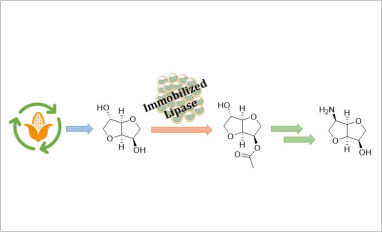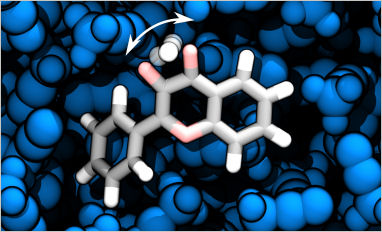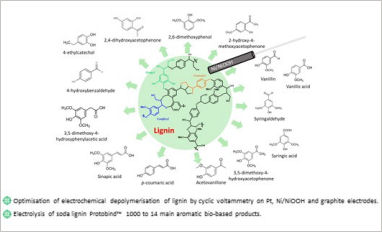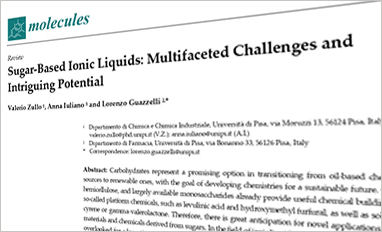

 Congratulations to our PhD students Michele Nottoli and Mattia Bondanza for their publication entitled: An enhanced sampling QM/AMOEBA approach: The case of the excited state intramolecular proton transfer in solvated 3-hydroxyflavone. In this work, we present an extension of the polarizable quantum mechanical (QM)/AMOEBA approach to enhanced sampling techniques.
Congratulations to our PhD students Michele Nottoli and Mattia Bondanza for their publication entitled: An enhanced sampling QM/AMOEBA approach: The case of the excited state intramolecular proton transfer in solvated 3-hydroxyflavone. In this work, we present an extension of the polarizable quantum mechanical (QM)/AMOEBA approach to enhanced sampling techniques.
 Congratulations to our Ph.D. Nicola Di Fidio for his scientific publication "Electro-oxidative depolymerisation of technical lignin in water using platinum, nickel oxide hydroxide and graphite electrodes" on the RSC "New Journal of Chemistry". In order to improve the lignin exploitation to added-value bioproducts, a mild chemical conversion route based on electrochemistry was implemented.
Congratulations to our Ph.D. Nicola Di Fidio for his scientific publication "Electro-oxidative depolymerisation of technical lignin in water using platinum, nickel oxide hydroxide and graphite electrodes" on the RSC "New Journal of Chemistry". In order to improve the lignin exploitation to added-value bioproducts, a mild chemical conversion route based on electrochemistry was implemented.
 Carbohydrates represent a promising option in transitioning from oil-based chemical resources to renewable ones, with the goal of developing chemistries for a sustainable future. Cellulose, hemicellulose, and largely available monosaccharides already provide useful chemical building blocks, so-called platform chemicals, such as levulinic acid and hydroxymethyl furfural, as well as solvents like cyrene or gamma-valerolactone.
Carbohydrates represent a promising option in transitioning from oil-based chemical resources to renewable ones, with the goal of developing chemistries for a sustainable future. Cellulose, hemicellulose, and largely available monosaccharides already provide useful chemical building blocks, so-called platform chemicals, such as levulinic acid and hydroxymethyl furfural, as well as solvents like cyrene or gamma-valerolactone.



